From Zero to Happy: Neil Pasricha
Entrepreneur and bestselling author Neil Pasricha, an executive who quit his job to chase happiness and ended up with so much more, is sharing his secrets to a happier life.
“Writing is totally torture.”
This is definitely not something one would expect to hear from the author of international bestsellers The Happiness Equation and The Book of Awesome series. But, according to Neil Pasricha, “it’s that torture, that perfect creation of a good sentence and the right paragraph, that gives you an incredible high.” Surely a notion most writers wouldn’t hesitate to agree with.
Sitting in the PEI room at the Fairmont Royal York in Toronto, Pasricha’s personality is as vibrant and charming as the decor in the century-old landmark. The former Walmart Canada executive turned author, speaker and optimist is here with the Canadian Club preparing for his talk “Happier People, Happier Organizations.” His introduction: friendly; his presence: confident. Pasricha lights up the room.
Pasricha first discovered the healing power of writing in 2008, when he turned to publishing a personal blog to help him cope with two significant losses, the collapse of his marriage and the loss of his best friend to mental health issues.
The blog is titled 1000 Awesome Things, and chances are you’ve come across it once or twice before. Flipping to the cold side of the pillow, finding $5 in your jacket pocket, when the cashier opens a new checkout line at the grocery store — blogging one awesome thing, five days a week for four years straight is how Pasricha hit his magical 1,000 entries. Little did Pasricha know, his seemingly insignificant chronicling of simple pleasures would become a huge undertaking, yielding an unexpected reward.
“[When I first started] I came up with a list of everything I could think of, and I only had 12,” says Pasricha. “It was from writing those 12 that friends started sending me suggestions and I developed the ability to start seeing them throughout the day.”
The blog became a therapeutic ritual for Pasricha. He started to bring a notebook around with him to jot down awesome things he encountered throughout the day. Eventually, Pasricha released the first book in The Book of Awesome series. Sales skyrocketed, and the lighthearted feel-good title turned up everywhere, topping bestseller lists and garnering 50 million hits online.
Pasricha went on to receive numerous accolades, began travelling the globe, gave talks to royal families and was even invited to do a TED Talk.
Unfortunately, Pasricha quickly learned that success didn’t equal happiness, at least not for him. His new life of travel and engagements wore him down, and the young entrepreneur began to distance himself from forming personal relationships and doing things he enjoyed.
So, he took a step back and recommitted himself to the pursuit of happiness. Along the way, his life turned around. Pasricha fell in love with Leslie, a school teacher from Toronto, and the two married and welcomed their first son in 2014.
His most recent book, The Happiness Equation: Want Nothing + Do Anything = Have Everything, was Pasricha’s biggest challenge yet and a complete change of course.
The guide to a happier life originated as a letter to his first child, a true work of heart. In the months leading up to the birth of his son, Pasricha wrote to his baby every single day. He had no intention of publishing the 300-page letter, but eventually Pasricha felt compelled to share his message with anyone concerned about their own happiness.
“Advice only confirms what you already know. It is an alibi, it isn’t truth”
“Often times we look at self-help or positive-psychology literature and say, ‘Hey, happy guy, show me how to be like you,’” explains Pasricha. “But I’m the exact opposite. I don’t have it, so I’m searching for it and I’m developing practices that work and then sharing them.”
When Pasricha says he “doesn’t have it,” he means that he isn’t the “Pied Piper of Happiness,” as he had previously been referred to during the Book of Awesome tour.
Pasricha spent hours on end researching, reading countless positive psychology studies and compiling eye-opening statistics. The book is practically the holy grail to a happier life and a positive mindset.
There are nine secrets Pasricha shares with readers, his recommendations ranging from minor habitual changes to larger shifts in perspective. Pasricha’s most extensive task was filtering and distilling all the information into a manageable guide. “People buy a lot more books than they read — I know I do,” says Pasricha. “I really wanted this to be a book that people read.”
From birth, society conditions people to think of great work and success as the source of happiness. Instead, Pasricha encourages readers to reverse that model: Be happy first, you’ll do great work and success will follow. According to The Happiness Equation, research suggests that 40 per cent of our happiness is controlled by intentional activities, things we can do in just 20 minutes or less to aid the cultivation of our own happiness. This is all part of secret number one, in which Pasricha divulges the things you must do before you can be happy.
Back when he started journaling in 2008, Pasricha didn’t know that he had actually been validating the theory of several positive-psychology studies that show journaling for 20 minutes a day can actually improve the quality of one’s relationships and reduce pain. Perhaps that’s why The Journal of Awesome outsold many of the books in Pasricha’s series. He calls this practice the 20-minute replay, and even encourages couples to do this together at the end of each day.
What about adding three brisk 20-minute walks to your week? Penn State research shows people who did this over a period of time had a higher happiness rating than people on prescribed anti-depressants.
(Other 20-minute rituals: random acts of kindness, a complete unplug, two-minute meditations and five gratitudes)
What’s most inspiring about Pasricha’s approach to his work is that he leads by example. Through his talks, the 37-year-old shares personal examples of how he manages to put his secrets into action.
Every night before bed, for instance, Pasricha and his wife play a game called “Rose, Rose, Thorn, Bud.” “A rose is a gratitude or highlight from the day, thorn is something that didn’t go well and a bud is something you’re looking forward to,” says Pasricha. He shares that it’s a simple back and forth that gets you four gratitudes before you turn out the lights. “We know from the research that you only need to write down five a week to bump up your happiness — this is a fun and simple way.” Count your roses nightly and you’ll have double.
It may seem difficult to find time during a busy week to accomplish any of these simple tasks, but Pasricha proves that it’s not impossible. For evidence, take secret number six, which provides a foolproof formula for effective time management and the key to never being too busy again.
Two-hundred ninety-five is the average number of decisions a person makes each and every day. According to his research, Pasricha says, by automating that by automating the low-time-low-importance tasks, regulating the high-time-low-importance tasks, and effectuating low-time-high-importance tasks, there is decision-making energy left to debate “the big ones.” This is one tool that allows people to effectively create space for life’s most important decisions, like where to live or who to be with.
The final secret of the nine, and the most important, according to Pasricha: don’t take advice. Yes, he wrote an entire book of advice only to tell you not to take it. This is because there is no such thing as objective advice, and all advice conflicts. He questions: Is the pen mightier than the sword, or do actions speak louder than words?
“Advice only confirms what you already know. It is an alibi, it isn’t truth,” says Pasricha, who recently launched The Institute for Global Happiness to help organizations foster long-term happiness among their employees. “When you don’t know what to do and don’t know where to go, remember, the answers are only inside you.”
Photo By Robin Gartner
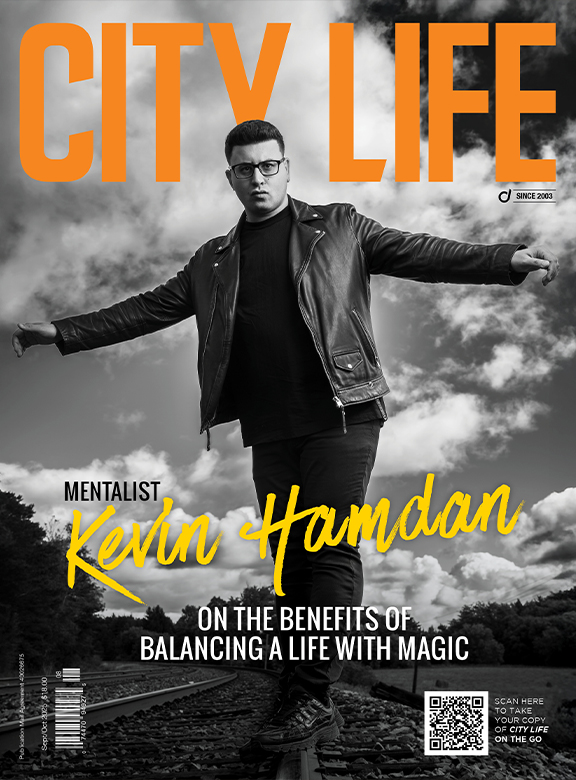
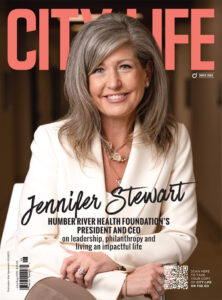








































































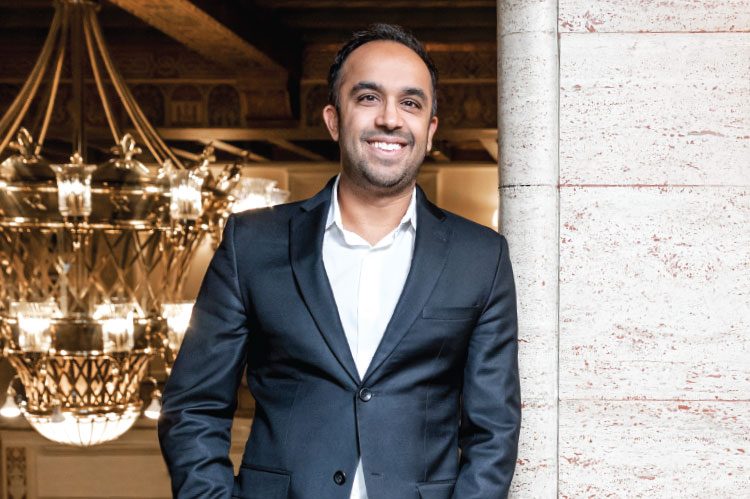
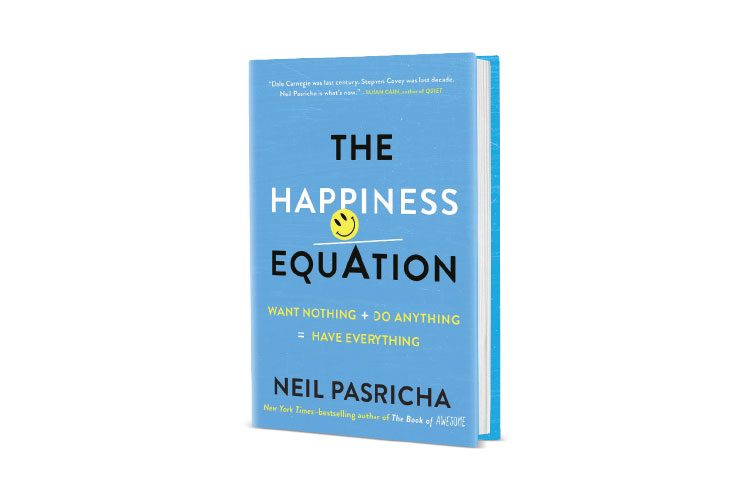
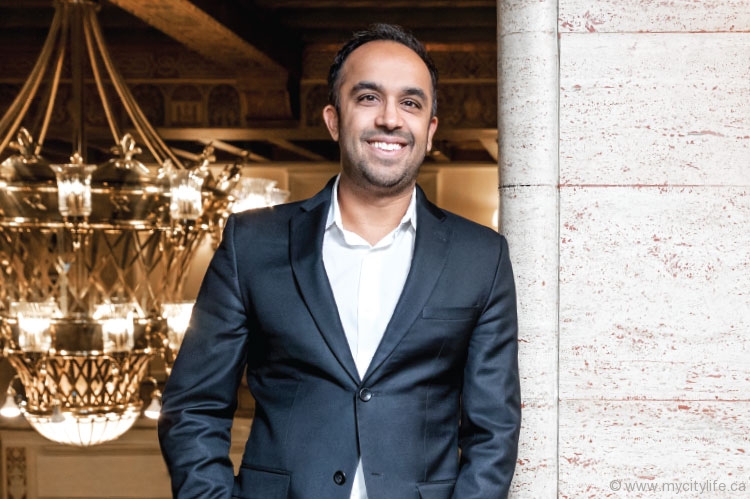


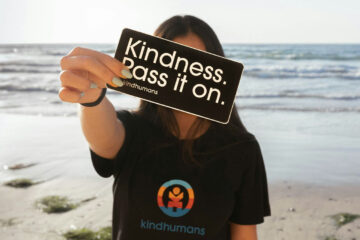



No Comment